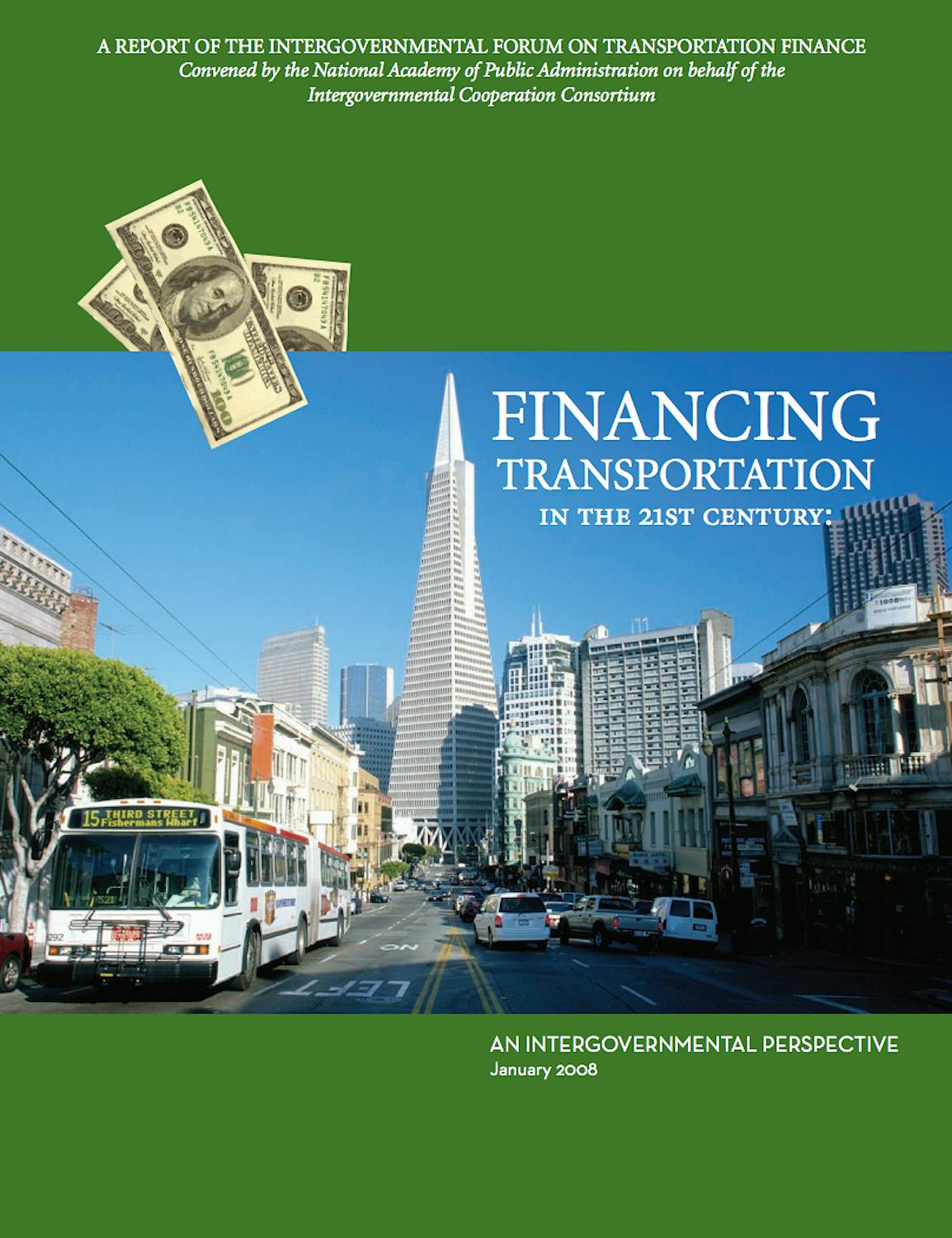
Financing Transportation in the 21st Century: An Intergovernmental Perspective
Although governments at all levels have become increasingly interdependent, limited opportunities exist for officials to meet and discuss common problems and potential solutions across the boundaries of the intergovernmental system. The Intergovernmental Forums, convened by the National Academy in concert with six national associations representing state and local officials, seek to fill that gap. The six participating organizations, in addition to the Academy, are: Council of State Governments, International City/County Managers Association, National Association of Counties, National Conference of State Legislatures, National Governors Association, and National League of Cities. The topic chosen for the Forum that produced this report was "Financing of the Nation’s Surface Transportation Programs." Chapter 1 of this report describes the roles and responsibilities of the many governments and other entities that support our nation’s highway and transit systems. Chapters 2 through 5 constitute the report of the Principals on surface transportation finance issues. The Principals’ recommendations are presented in Chapter 5. The views expressed and recommendations made in this report are those of the Principals—acting in their individual capacities, not as representatives of any organizations with which they are affiliated.
Click the button below to view the View Study Report.
View ReportKey Findings
The effort to re-craft transportation financing arrangements so that they can reliably support future highway and transit needs will face several difficult intergovernmental challenges; effectively addressing these challenges will be central to success. Responsibilities for financing and delivering services in both the highway and transit programs are shared by federal, state, and local governments. Governments also share many of the same tax bases, and are accountable for results to the same voters and transportation system users. What one level of government does affects what the other levels can or must do, or sometimes cannot do. The “ecology” of the intergovernmental relationships in these programs is finely tuned; sudden or major long-term shifts in these relationships will impact the whole intergovernmental system for financing and delivering transportation services.
Recommendations
Briefly stated, the Forum’s six recommendations are:
- Congress and the Administration should take immediate action to ensure the sustainability of the federal Highway Trust Fund, and should work with the nation’s state and local governments to ensure sustainable financial resources adequate to maintain existing surface transportation infrastructures and operations in the future, as well as to support the increased capacity needed to improve performance.
- National surface transportation performance goals and the intergovernmental roles and responsibilities needed to achieve these goals should be established collaboratively.
- All levels of government should maintain the revenue-raising principle that the users and beneficiaries of surface transportation systems and services should pay as much as possible of the costs of providing established levels of service.
- In establishing intergovernmental and public-private roles and responsibilities for raising needed surface transportation funds, public policymakers should examine a wide range of sources and scenarios.
- When examining these revenue-raising scenarios, public policymakers should consider the intergovernmental impacts of proposed actions for each level of government, relative to the other levels of government.
- When the federal and state governments make major changes in their surface transportation financial assistance programs, they should provide transition time to allow the governments receiving assistance to adjust to these shifts. These recommendations are more fully stated in the final chapter of this report.
